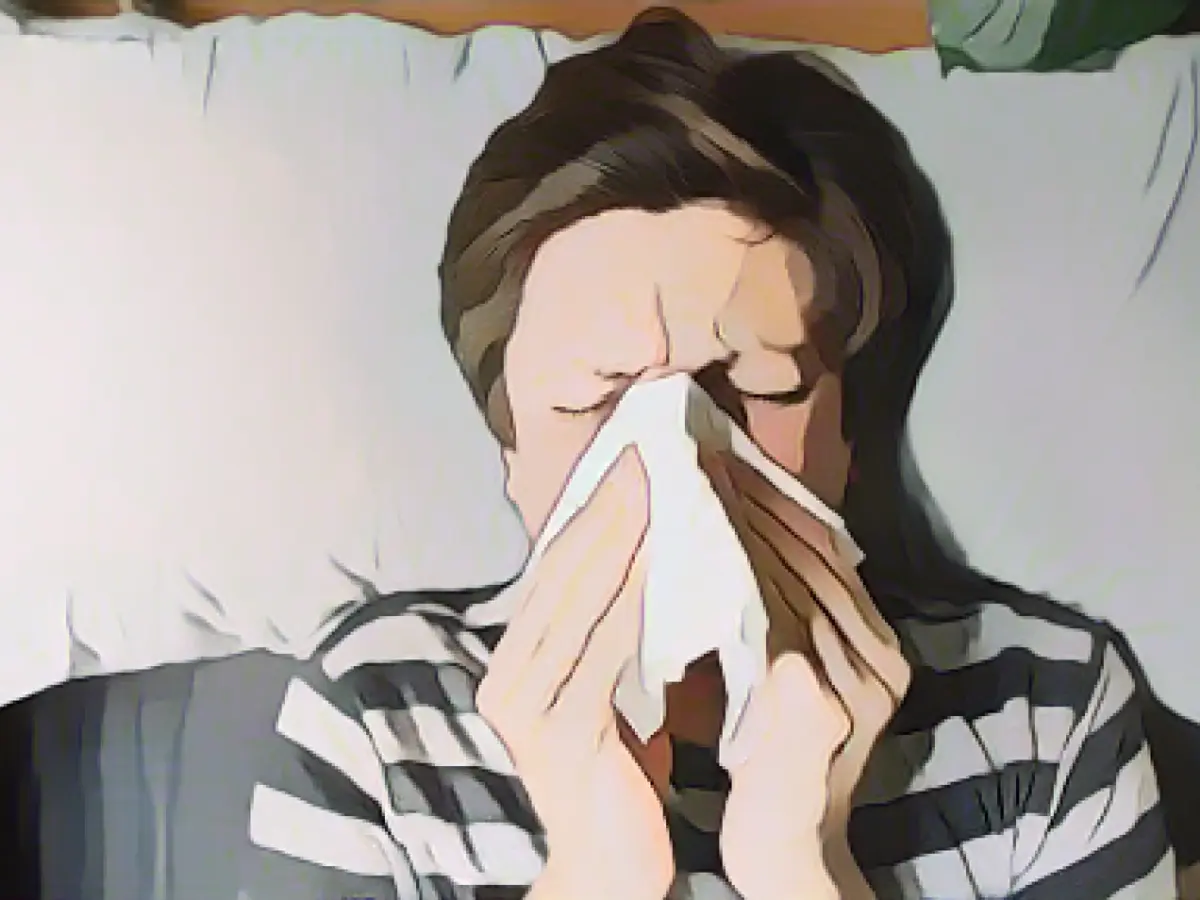In the lead-up to Christmas in Germany, respiratory woes persist. The number of acute respiratory infections continues to climb, with Coronavirus, colds, and Flu still rearing their heads according to the Robert Koch Institute (RKI). The latest report indicates a staggering 7.9 million cases nationwide (previously reported: 7.1 million), irrespective of doctor visits.
Corona has seen a resurgence in popularity, especially after the RKI recently announced the commencement of the RSV wave. Meanwhile, Flu cases are also on the rise significant, despite the RKI still not deeming this to be the start of the flu wave, which is typically triggered by influenza viruses.
Influenza cases predominantly affect school-aged children and young adults, and the number of nationwide confirmed cases is relatively low – under 1,400. However, influenza cases have seen a substantial increase, more than doubling compared to the previous week. Coronavirus cases, however, continue to climb more drastically, with around 26,850 reported cases for the past week. Keep in mind, these numbers are likely the tip of the iceberg.
In response to these statistics, Dortmund immunologist Carsten Watzl points out that the high proportion of Sars-CoV-2 in all respiratory infections contributes to the overall increased number of infections.
Epidemiologist Hajo Zeeb suggests another reason for the rise in respiratory diseases: people may be more aware of them, leading to more doctor visits and absenteeism from work.
However, Dortmund immunologist Watzl rejects claims that hygiene measures during the pandemic weakened our immune systems. Not only is this primarily a misconception, but the current increase in cases is attributed to the emergence of one additional pathogen for respiratory diseases.
Despite the deteriorating situation, severe corona cases are not yet a thing of the past, but Leif Sander, a Charité expert, alerts us to the importance of caution. Voluntarily wearing masks in crowded spaces is still a sensible precaution – not only to protect against the coronavirus but other viruses as well.
In this context, Federal Health Minister Karl Lauterbach's recent warnings about the coronavirus received backlash from Andreas Gassen, head of the National Association of Statutory Health Insurance Physicians. Gassen believes that Lauterbach’s appeals are excessive since the threat of a pandemic is no longer an issue. Gassen instead recommends vaccination against both corona and flu for elderly individuals and those at risk.
- Enrichment Data:
In response to the situation, the Robert Koch Institute (RKI) has employed a novel mathematical model to estimate the number of individuals susceptible to different variants of SARS-CoV-2 in a particular region at a given time.
The RKI has reported a high number of acute respiratory illnesses (around 19.7 million) between the 40th and 52nd weeks of the year, which correspond to the months of October to December.
RSV infections are common during the colder months, although the RKI did not provide specific details on its impact during the pre-Christmas season. Influenza infections are particularly prevalent in January and February, typically caused by Influenza A viruses.






